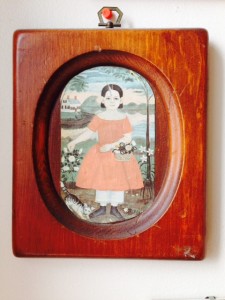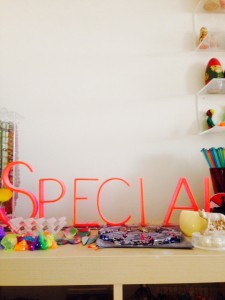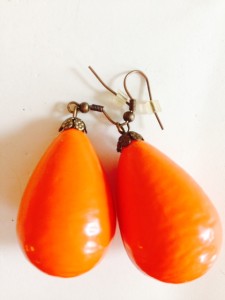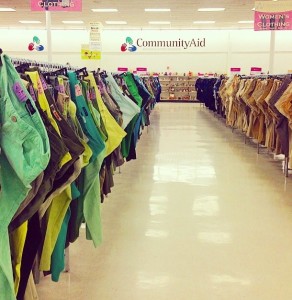Interview // Dorothea Lasky
By Diana Khoi Nguyen | Contributing Writer
Dorothea Lasky was born and raised in St. Louis, Missouri. She earned a BA at Washington University and an MFA at the University of Massachusetts Amherst. She has published four collections of poetry, ROME (Liveright, W.W. Norton, 2014), as well as AWE (2007), and Black Life (2010), and Thunderbird (2012) and several chapbooks, including the polemical Poetry Is Not a Project (2010). Her poems have appeared in a number of prominent publications, including the New Yorker, Paris Review, and American Poetry Review. Lasky was awarded a Bagley Wright Fellowship in 2013, and she is an assistant professor of poetry at Columbia University.
I’ve read that poetry found you when you were seven. How did this happen? What were your earliest poems like?
It did! I started writing poems late at night around this age because I couldn’t sleep. Poems were the things I could write by the light of my nightlight because they didn’t need to follow any grammatical rules. The voice I wrote poems into found me before any other writing voice, but then for a while I started writing stories and then in the end, went back to writing poems.
My earliest poems were meant to be spoken. After writing a few poems late at night, I would go into my parents’ room and read the poems to my mother (my dad always went to bed early). She loved to stay up late and she was very supportive of my readings, often giving me lots of helpful feedback. She is a painter and art historian and was always 100% behind any kind of art-making I did, so she was an ideal first audience.
So, I guess my earliest poems were always about sound. And the idea of a listener. Not necessarily tons of listeners, but an immediate one.
Here is one of my earliest poems, called “Blue Dignity”:
Blue dignity
Is suddenly black
And brown and grey
Other colors that cause flack
A sapphire poses
Amongst a bed of roses
And strength and triumph remain
Where graceful refrain
Oh copper-colored cream
What did I dream
Don’t replay the past
Or snakes will wrath
Violets violets of the sea
Why did you
Leave me
“Blue Dignity” is incredible, Dottie! The ebb and tide of the colors—“copper-colored cream” is my favorite moment here—really creates an impactful architecture for sound. I know writers often refer to earliest work as juvenilia, and but I think this poem went from egg to dragon in one fell swoop.
Speaking of early writing, who were your earliest writing crushes? I’ve read that you’re a fan of Catullus, Plath, and Stein (among others, am I correct?).
Those were very big ones! And the three of them are still extremely important to me. Also, Ovid and H.D. and Turgenev, Solzhenitsyn, Kafka, and Freud were early crushes.
After my first year in MFA at Columbia, I participated in the Juniper Writing Seminar at UMass Amherst. What a magical place! I think my favorite memory from that summer was riding my bike to a local swimming hole, and screaming in terror/delight while jumping off a cliff into the pond. What was your MFA like at Amherst?
It was entirely magical—although I never jumped off a cliff into a swimming hole. That’s not something I could ever get myself to do, sadly. It was a community of writers and I felt very connected to my peers there in the best of ways. The idea of community and solitude was cultivated and it was the first place that I ever felt empowered to be a real poet. There I could think: this is what my life might be, if I’m lucky.
And what sparked your pursuit of graduate study in education? When you open your museum, may I be employed in some capacity? I have strong (colorful and creative) operational skills, I swear!
Yes, please! No resumes needed—I know everything I need to.
What sparked my interest was what I saw was an obviously faulty US educational system most directly when I started teaching after finishing my MFA program. I was teaching in a for-profit arts college in Boston and I saw so many amazing artists who had wound up in a college that wasn’t exactly right for them because the system had failed them. They were smart, but so many of them didn’t leave high school with good grades because their schools valued other skills over creativity.
It was during this time that I realized my students were only a small sample of the problem and that there were so many young artists in high schools with no support system for them. They were in schools with no full-time art teachers, with no designated spaces for art-making, with no leadership in their schools that supported the arts. And I vowed in that time that I was going to devote my life to making a space for young artists to feel free to do the work they were meant to do. So, that is when I thought pursuing advanced studies in education might be the right next step for me to set upon the path to do this.
I really admire that you set out to make the changes you wanted to see. There really isn’t enough of that, sadly. Did you have any time between pursuing your various academic degrees? If so, what did you do during this time?
There were two years from 2004-2006 that I wasn’t in school and during this time I spent all of my time writing poems and teaching.
When did you know you wanted to be a teacher?
When I was in 2nd grade, I had a teacher named Mrs. Gurley who made teaching seem really glamorous. I am not sure exactly how she did it, but she was kind and so sharp. She was really wonderful at teaching math and to me, math is pure glamour. I remember she would drive up to school in a hot red Corvette and she had this feathered ginger-colored hair and wore lots of brightly colored silk scarves, and had long tapered fingers. (It was the 80s and all of these things were very cool.) I started teaching my stuffed animals every night after school, pretending I was Mrs. Gurley. I was hooked, because I realized teaching is a performance. And you are performing the most important kind of theater with a purpose: the act of learning.
So true: math is pure glamour (and somehow becomes the origin of magic at its purest, most advanced levels. I wish I had the brain to comprehend the beauty of linear algebra, etc.). I started teaching / playing “school” with my younger siblings during summer breaks in elementary school—I also included a large stuff wolf named “Wolfie” my grandmother won at Circus Circus in Vegas. The classroom is absolutely a stage in which so much internal change occurs from when one walks into the room and then out of the room. I love your story and analogy.
As a young person working on her first book, what I always have to ask is: How did you get your first book published?
I am glad you are working on it! I have faith in you.
Getting my first book published was difficult. I entered every poetry contest that I could find for four years and never won one. I almost gave up a million times and grew very distrustful of the system that published poetry. In the midst of this, I met Joshua Beckman, who took an interest in my poems. I told him about my plight and he offered to help me organize my manuscript, which I was calling (and eventually did call) AWE. He sat with me for days and got the book into better shape. I never had someone help me really consider the overall book as a thing, as a poem in and of itself, so it was mind-blowing to work with him. Then I took the book and entered more contests and didn’t win again. After a while, I submitted the book to Wave Books and they published it. I owe so much to Joshua and love him immensely. We all need a reader who truly cares early on and he was that person for me.
How lucky that you found that—and in the human of Joshua Beckman! And what an important lesson in perseverance—I know I have to persevere, but knowing that doesn’t make the act any less difficult. If you could talk to a younger Dottie, say, Dottie in her mid-20s, what would you tell her?
I wish I could tell her to stop being so serious and have some fun. My mid-40s Dottie keeps telling my present mid-30s Dottie that, too.
That makes you the middle-child Dottie! What an optimal position from which to proceed in life. And you are having fun! Or you seem to me, like the poet with the most fun—a chakra/vortex of fun/wonder.
Do you have any advice to young writers who are struggling now?
Just to please stay with it, no matter what—good or bad. There is an audience for your work—you just have to find it. It is very rarely in the first place you look for it. But if you write to your readers, they will find you. They need you and never forget how much they and we need you.
My editor told me that you are a lover of thrift stores (if this is not true, then she will start this rumor). However, I am a lover of thrifting and recently discovered that the largest thrift score in the country is mere minutes from my own front yard! I took this picture, which I think you’ll appreciate on many levels.
Oh I do! Where is this and how can I get there?
It is in Selinsgrove, Pennsylvania—neighboring town to Lewisburg. Wait! You’re coming to Bucknell in the Spring! I’ll take you not only on a tour of Lewisburg, but to this mecca. It’s called Community Aid Thrift Store! It used to be a Kmart or Walmart, but now is a thrift mart.
Since you are a lover of thrift stores, I hope you won’t mind indulging these thrift store related queries:
What is it about thrift store shopping that draws you to it?
What draws me to them is that I am obsessed with secret treasures and thrift stores give you the ability to hunt for what you can’t find easily. I am very interested in how people organize spaces and while I love the way retail stores and boutiques choose an aesthetic and run let this govern the overall organization of their spaces—it is so refreshing how thrift stores let the beauty of the things govern everything.
Okay. Say you’re walking through the doors of a thrift store familiar to you. What’s your first move?
I move towards whatever color is the brightest—no matter what it is adorning.
Like the winged insect to the lantern!
Please describe a few of your favorite thrift finds.
This is the hardest question of the bunch!
One I got in a Goodwill in Boston about 10 years ago. It is a painting of a girl with a cat and she is the front and center of the landscape. She is the setting. It has the flat composition I love about the American aesthetic (in painting and poetry). She has a scratch across her forehead, which I always took as having deep meaning.

The second is a neon pink Plexiglass sign my parents got me a long time ago at a store in Northampton. It says “Special” It’s a great word to see lit up in this way and I wish I had more things like it. What if we could make Plexiglass sculptures for all of our favorite words?

The third are some orange earrings I got about a week ago at a store in NYC called Eye Candy. I think they look like kumquats and I can tell I am going to love them for forever.

Is there a connection between thrift store shopping and writing poetry?
The simple answer is yes.
I think that if you live your life drawn to your creative instincts, there is a connection in everything that you do. When people tell me they only have one talent or one expertise, I never believe them. When you think of the new, the world becomes your never-ending masterpiece.
So true—everything is “mixed media,” I think. Okay last question: What’s your ideal dinner party guest list (no poets allowed)?
Notorious B.I.G., Shirley Chisholm, Maxine Greene, and Bill Clinton.
—
Read and listen to more from Dorothea Lasky at Poetry Northwest.
—
A native of California, Diana Khoi Nguyen is the current Roth Resident in poetry at Bucknell University and a 2015 Bread Loaf Bakeless Camargo Fellow. Her poems and reviews appear in Poetry, Gulf Coast, Kenyon Review Online, West Branch, Lana Turner, and elsewhere. This fall, she will enter into the creative writing PhD at the University of Denver. www.dianakhoinguyen.

